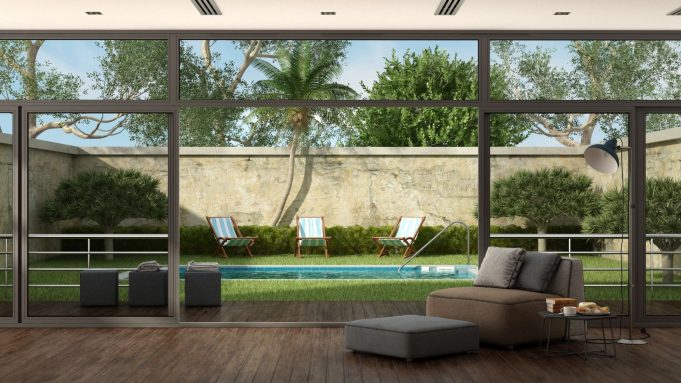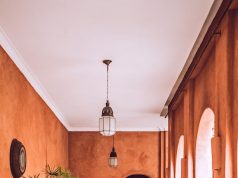2020 has been a year of radical changes, not least in the way we work. The long-term upward trend in the numbers of people homeworking increased dramatically as a result of the coronavirus lockdown. For many businesses and employees, the benefits remote working has brought to productivity levels and work-life balance mean that they’re keen to make that change permanent.
If you’re looking forward to a long-term home working life, then you might be in need of extra-space. There’s only so long anyone can work from a corner of the spare bedroom or the kitchen table.
If so, you might be considering a garden room. If you are, you’re not alone, with their popularity continuing to rise.
But why exactly are they so popular and can they really match up to a loft conversion or home extension?
Versatility
The current focus might be on home offices, but there’s a lot more to garden rooms than just places to work. They can be purposed and re-purposed for a wide variety of uses. Garden rooms can be used as guest bedrooms, home gyms, yoga studios, home bar, cinema room or a teenage crash pad. The possibilities really are endless.
No planning permission
Unlike loft conversions and home extensions you rarely need planning permission when you want to install a garden room. This not only reduces costs, it also means your garden room can be installed in a very short space of time. If you’re adjusting to home working now you might not want to go through the lengthy process of commissioning plans, applying for planning permission, finding a builder and then waiting for the extension to be built. A garden room can be installed within weeks of the order being placed.
The only possible exemptions are if you live in a listed home or a conservation area. Your garden room supplier can advise, and you can consult your local authority for extra clarification.
In the overwhelming majority of cases planning permission won’t be an issue for your garden room.
Minimal groundwork needed
The prospect of lengthy and disruptive building work puts many people off opting for a home extension. Foundations and groundwork in particular can be exceptionally inconvenient as well as costly. Garden rooms don’t require extensive groundwork. Instead, they are mounted on concrete pads and heavy-duty steel feet which means they can easily be installed anywhere within the garden.
They can save time, substantial amounts of money and lengthy disruption but give you extra space in no time at all. Despite the lack of groundwork required, garden rooms remain incredibly strong, stable and durable whatever the weather and the years can throw at them.
A bespoke garden room can help you realise your dream
Although garden rooms come in a range of sizes and standard designs, there need be nothing off-the-peg about your own garden room. The standard designs allow for a great deal of customisation. Because a garden room can easily be customised with internal walls, shower or sink units, multi-fuel stoves and a range of other features, they can be made bespoke for any particular purpose.
If you grow out of one particular use, it’s possible to modify your garden room to make it fit for another one. An increased consumer understanding of the versatility of garden rooms is really helping to drive their growing appeal.
Much cheaper than a loft conversion or home extension
For most people opting to have their loft converted or home extended, this means borrowing more money on their mortgage. It can represent a significant, and ongoing financial commitment that they will hope to recoup through rising property prices.
Garden rooms are much more affordable and can still add value to your property, or at least make them more appealing to a wider range of buyers. With more people working from home, properties that come complete with a dedicated home office are likely to be in greater demand.
Garden rooms make extra-space more financially achievable to a wider range of people without taking on the burden of extra borrowing.
Garden buildings can be used all-year-round
Many people make the false assumption that garden rooms are too cold to be used for any length of time in the winter. They perhaps remember garden sun houses or sheds in the past that were simple wooden structures designed for seasonal use.
Contemporary garden rooms come with high-specification insulation in the walls and roofs making them super cosy all-year-round. It’s also possible to add a wood burning stove or other heat source to your garden room to really make it snug in the height of winter.
In the summer, you can throw back the doors and enjoy the extra space in the middle of the garden, and in the winter you can huddle down against the cold and warm inside your garden room whatever the weather is throwing at you.
Quick to build
If you’re in urgent need of extra-space having to wait for an extension to be built or for a house sale to be completed can be a real trial. If planning permission is involved there’s an extra delay with no certainty that your application will be approved.
One of the attractions of garden rooms is just how quickly they can be on site and installed. From ordering to installation can take just weeks. Being modular in design the actual installation process itself takes just a few days.
Garden Room Sanctuary provide a range of bespoke garden rooms that can help you get the space you need and realise your dreams, with free delivery and installation in the UK. Whether it’s a home office, cinema, home gym or guest bedroom, their completely customisable garden rooms can be installed in your garden within a matter of weeks.














